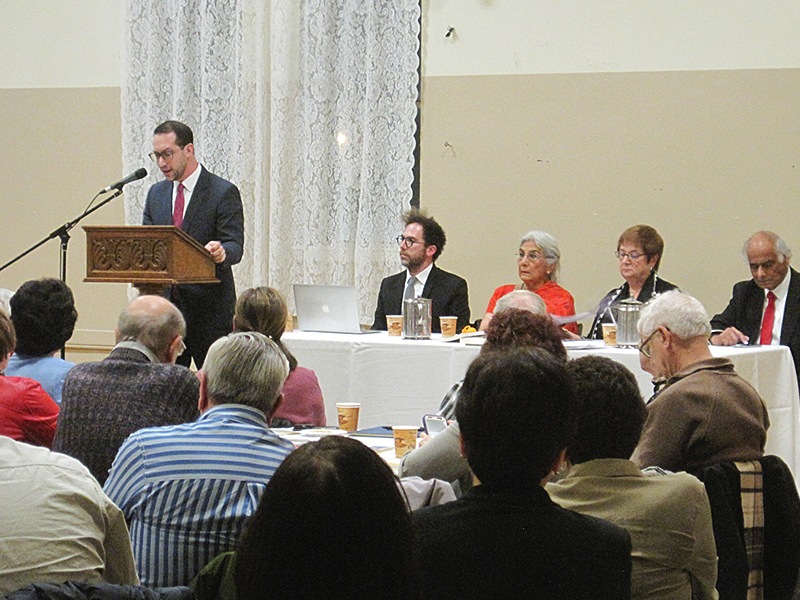The question of Islamist terrorism has become a primary focus of late, and due to the dramatically evil manifestations of Islam’s most extreme adherents, the dominant emotion pervading many of these discussions has been fear. Fear of the known, and of the unknown.
On a rational basis, the fears are justified. But much of our fear is based on ignorance of the “other,” because the level of dialogue between Muslims and Jews has been limited.
The resulting ignorance of Muslim beliefs and practices is not useful for our Canadian society. Ignorance begets fear. Fear can lead to behaviour that may simply create a self-fulfilling prophesy. If we behave as if we expect every member of a particular group to be an extremist, then we create conditions that increase the likelihood of that taking place.
Reduction of ignorance requires learning. That in turn suggests that we look for opportunities for dialogue. There are nascent organizations working to do just that. Recently, Holy Blossom Temple in Toronto hosted an evening of Muslim-Jewish dialogue with the catchy title “We Refuse to be Enemies.” To have such dialogue can only help us to understand the “other.” And if what we learn turns out to be that much less problematic than that which generates our fears, then ignorance reduces and fear subsides.
Of course the reverse is also true: if we learn that the naysayers are indeed correct, and that there are Islamist cells in Canada, ready to be awoken, and that there are imams preaching hatred and violence in our neighbourhoods, then our fears would justifiably increase. Either way, knowledge through dialogue and other forms of learning is the pathway.
Yet, I wonder whether there should be certain conditions that accompany such dialogue. I believe there is a core question that should be asked and answered in any case of public dialogue between Jews and Muslims. Namely, does the individual who intends to participate in the dialogue with us accept Israel’s right to exist as a nation among other nations?
If the answer to what ought to be a relatively innocuous question is yes, then there is a basis to have a useful dialogue, because the individuals in question have clearly accepted our legitimacy as a people by accepting the legitimacy of Israel.
But if the answer is no, then the dialogue may be counter-productive.
After all, while dialogue can generate knowledge, it is also meant as a way to build a relationship that can foster greater understanding between peoples. If one does not accept the legitimacy of the other, then there is no relationship to be had.
We Jews are only too quick to accommodate the other in order to be accepted, perhaps because we are such a small group and because millennia of abuse at the hands of others have left us constantly looking over our collective shoulders. However, it is in that willingness to over-accommodate that we often weaken ourselves.
On the other hand, if we set up preconditions to dialogue, we cannot begin to break down the barriers that the dialogue is intended to eliminate. It is indeed a conundrum.
We need to draw the line somewhere and avoid unconditional dialogue. And I think we are entitled, perhaps obligated, to ask about Israel’s right to exist so that we know what and who we are dealing with, particular where the dialogue is a part of a public event.
The same question might also be asked in private relationships and discussions. Shouldn’t you, as a Jew who values your people, and sees Israel as a core piece of the Jewish puzzle, want to know the answer to this core question from those non-Jews with whom you interact? I would, and have asked the question. Wouldn’t you?
Michael Diamond is a business consultant, entrepreneur, investor and philanthropist. He is involved extensively in Jewish and non-Jewish community life and sits on or chairs several boards and committees of a number of non-profit organizations.
